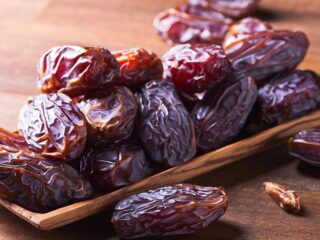
Food and agriculture industries
Water used in the food and agriculture industries must be of very high quality. In these industries, water is used to produce various products such as pastes, meat products, beverages, packaged vegetables and beans, oils, etc., and because the products of these industries are food, they need to be free of any microbial contamination.
In the food industry, water is used to wash raw materials such as meat, fruits, and vegetables. This water must be completely clean, hygienic, and safe. Water should also be used for the process, or in other words, for the production of products such as tomato paste, various compotes, beverages, etc. In addition to being free of microbial and chemical contamination, this water must also be free of any minerals and minerals. The presence of salts such as iron and manganese can affect the color, taste, and smell of food, so it is necessary to remove all of them from the water.
After food production, products must be packaged. But before that, the dishes need to be thoroughly washed. Here, too, we are faced with one of the applications of water purification in industries. If the water used to wash the dishes has microbial contamination, it will spoil the food. The presence of salts in this water can also change the color, smell, and taste of food in the dishes. Therefore, water must be purified before washing dishes with water.
Food industry wastewater
Food industry wastewater contains large amounts of fats, organic matter, sugars, and suspended solids that must be treated before entering municipal wastewater or for reuse in industry. The presence of organic matter in wastewater increases the growth of microbes and fungi. Dairy wastewater, if it enters the environment, causes pollution and bad odor. Therefore, it is necessary for food industry wastewater to be disinfected before entering the municipal wastewater system or water purifier in the industry. For disinfection, a combination of chlorine injection, ozone gas, or ultraviolet radiation can be used.
Depending on the type of food produced, the amount of oxygen required by the biochemical BOD and the oxygen required by the chemical COD of the effluent will vary. It is better to treat wastewater in the food industry with a combination of physical, chemical, and biological treatment methods to have acceptable efficiency. By measuring the two quantities of BOD and COD, the quality of water purification in different industries can be evaluated.
Depending on the type of food produced, the amount of oxygen required by the biochemical BOD and the oxygen required by the chemical COD of the effluent will vary. It is better to treat wastewater in the food industry with a combination of physical, chemical, and biological treatment methods to have acceptable efficiency. By measuring the two quantities of BOD and COD, the quality of water purification in different industries can be evaluated.
Work Scope
By treating wastewater and reusing it in the food industry, both costs and water consumption are saved and production costs are reduced.
- Financial Responsibility to Our Clients
- Superior Quality and Craftsmanship
- Quality and Value to the Projects We Deliver
- Highest Standards in Cost Control
Rose water
The rose is probably one of the most well-known flowers in the world. This flower grows in the form of small bushes and Read more
Dates for export
This date has an oval shape and the color of this date is dark brown and sometimes tends to black and red. Read more


